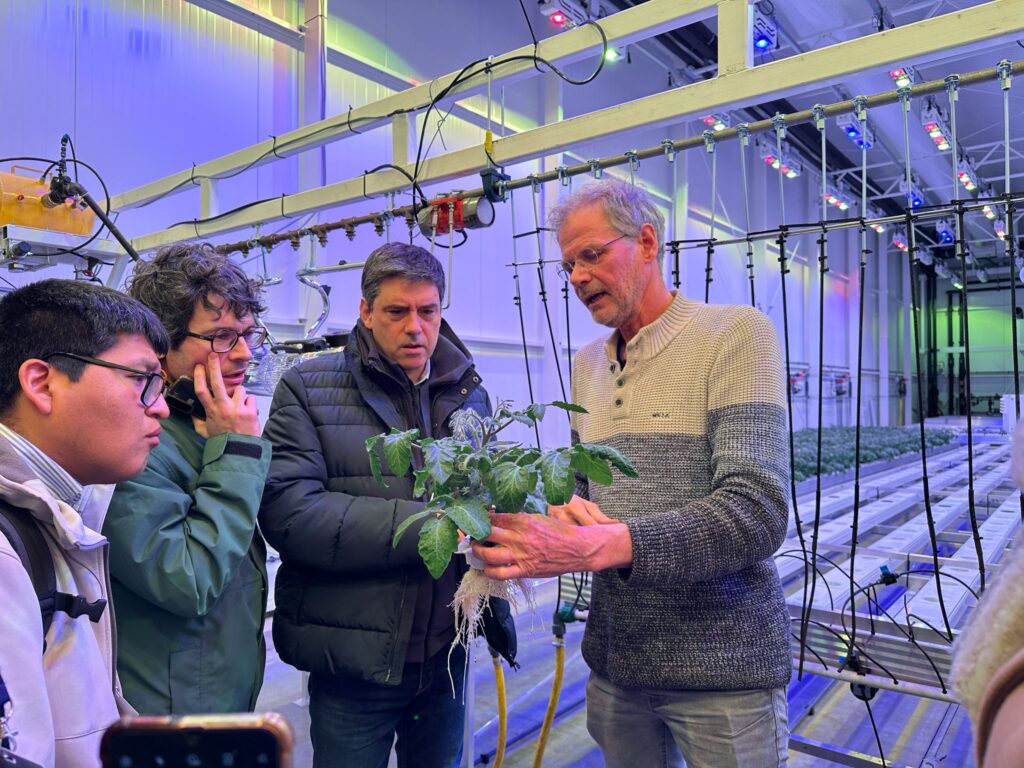The Seminar on Robotics and Artificial Intelligence (AI) in Agriculture and Forestry, organized by the EU CAP Network with the support of the Ministry and the Rural Network of the Netherlands, was held on February 19 and 20. The event brought together experts, entrepreneurs and professionals from the sector to analyze the impact of AI-based technologies on the productivity and sustainability of agriculture, livestock and forestry. Andrés Almeida, CEIGRAM-UPM researcher in the LIFE-ACCLIMATE project, participated in this event to present the project, observe the latest advances in robotics and AI applied to agriculture, particularly pest detection, and learn about the work being developed in this field.
The seminar featured successful case studies and live demonstrations of AI and robotics applied to irrigation, fertilization, pest control, and forest management. Key challenges in adopting these technologies were also addressed, including the need for reliable, well-developed, tested, and user-friendly solutions for farmers, as well as versatile and multipurpose technologies.
Another major topic was bridging the gap between scientific research and real-world implementation in the field, ensuring that innovations move beyond research institutions and directly benefit farmers. The importance of open communication in research, including open data policies, was emphasized as a way to foster collaboration and accelerate the development of effective solutions. Additionally, discussions highlighted the balance between technological stability and scalability, seeking models that enable expansion without compromising reliability. On the other hand, the research community highlighted the need for open communication, such as open data policies, to facilitate collaboration and accelerate the development of effective solutions.
The seminar also highlighted the need for the development of legislative frameworks and ethical considerations for AI-based tools. This will ensure that their implementation is safe, transparent and beneficial to all stakeholders.
Innovation in the agroforestry sector is advancing rapidly, and events like this are essential to understanding its impact and potential.








